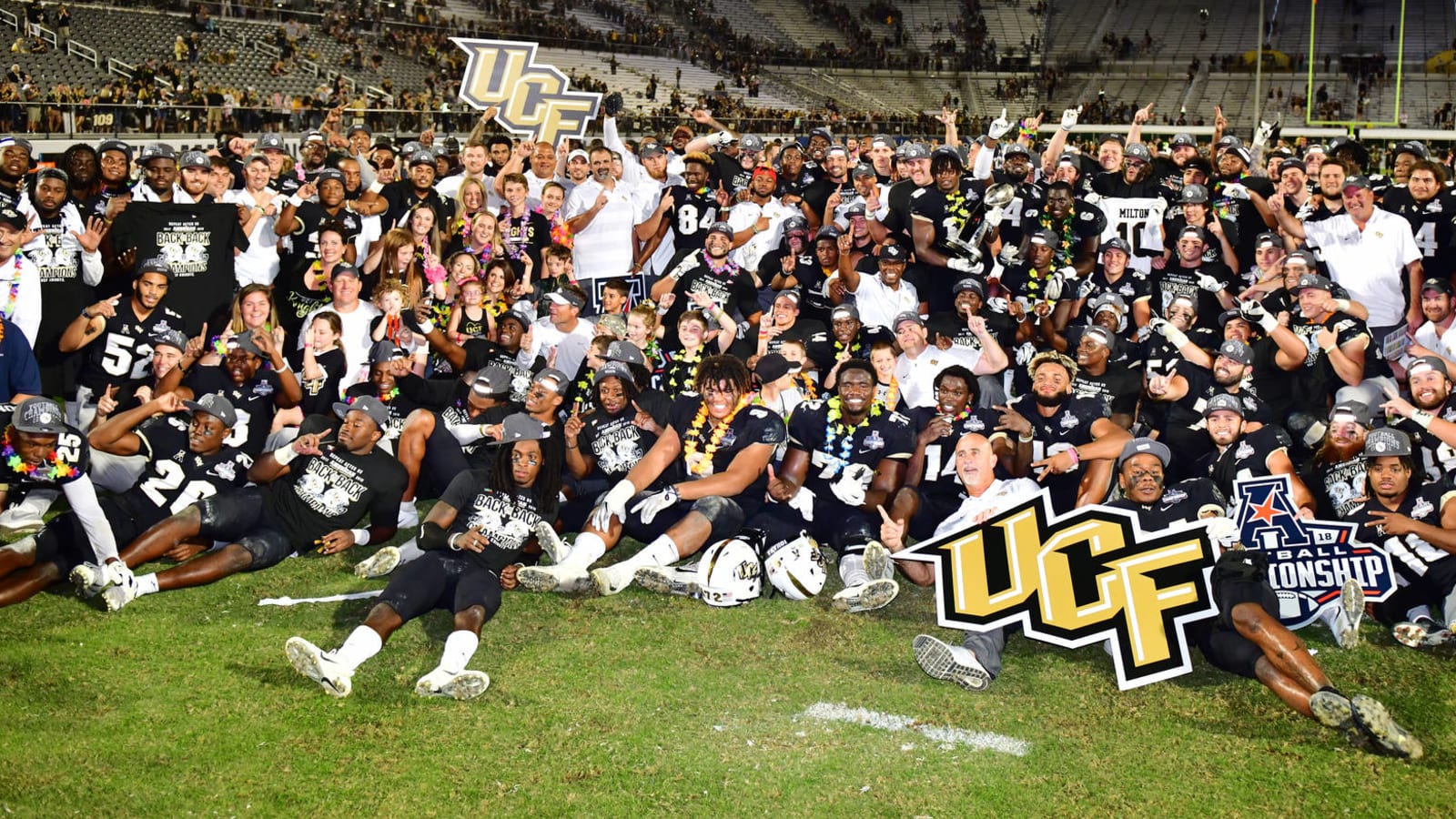
The case for expanding the College Football Playoff
The College Football Playoff had scarcely taken its inaugural breath when the rumblings began. How soon would the move to an eight-, or 16- or even 64-team field occur? As we prepare for the fifth season of Playoff matchups, the answer seems to be not soon enough.
Earlier this year, CFP executive director Bill Hancock put to rest the notion that a rumored expansion was imminent, saying it wasn't being discussed and that university presidents and conference commissioners were happy with the current system. Good for them. But it stands to reason that coaches, players and fans would be a lot happier if there were room for more competition. Here's why:
1. UCF
Sure, the Power 5 is the Power 5, and there are many reasons why in general, the teams in the Power 5 are superior to the rest of the field. The rise of the Knights proves that isn't always the case. Something is amiss when a team that's accomplished the incredibly difficult feat of two consecutive undefeated regular seasons doesn't get real consideration for a Playoff spot. Could UCF hang in with the likes of Alabama? Barring a change to the Playoff structure, we'll never really know. The fact that UCF finished below a pair of two-loss Power 5 teams in the final CFP rankings shows just how little respect the Knights have received in the eyes of the committee. Last year they defeated Auburn in the Peach Bowl. Who's to say they couldn't make a game of it in the Playoff? You can't have parity if you don't give parity a chance.
2. Conference champions
What's the incentive to win your conference when that doesn't guarantee you a Playoff spot? In the current system, even if every conference champ went undefeated, one Power 5 team would still miss the Playoff. That's not a likely scenario, of course, but we've already seen that number of losses weighs heavily over conference championships — twice, a one-loss non-champ has been selected over a two-loss champ. Two losses, even "good" ones, are a death sentence. An eight-game system would allow for "good" losses, put the Power 5 conference champs into the Playoff and still allow for three excellent one-loss Power 5 teams or Group of Five standouts. It would make a much more varied and interesting field of contenders.
3. RIP, bowl games
In the Playoff era, even the most storied non-Playoff bowl games have lost their luster. That's because for the highly ranked teams that play in them, anything other than a Playoff berth feels like a consolation prize. Washington, for example, started the 2018 season with Playoff buzz. Three losses quashed those hopes, but the Huskies rallied to win the Pac-12 and clinch a spot in the Rose Bowl for the first time in nearly two decades. Does anyone care? Nope. (For proof, see reason No. 4.) By this logic, expanding the Playoff would likely render the remaining bowl games even more irrelevant but would give four additional teams the chance to play for something really meaningful.
4. Players sitting out
The creation of the Playoff has spawned an alarming side effect: top players sitting out their bowl games to avoid draft-stock-reducing injuries. In the BCS era, this phenomenon simply wasn't a thing. By contrast, this season, almost a dozen highly regarded players have announced they'll skip their teams' bowl games. For example, Michigan's Rashan Gary is sitting out the Peach Bowl! LSU's Greedy Williams is skipping the Fiesta Bowl! Those are top-tier bowl games, but players don't care about any game that's not a Playoff. It's a lose-lose situation for teams and fans alike. Without the biggest playmakers on the field, the quality of the product declines and the teams are forced to adjust their play-calling. At best, it makes for less exciting football. At worst, it changes the team dynamic and renders the committee's bowl game selections uneven.
5. Cinderellas
A huge part of what's popularized the NCAA Basketball Tournament is the possibility of upsets. Even a casual fan can appreciate the moment that a 13-seed upsets a four-seed. As the Playoff currently stands, upsets are nonexistent. OK, it was technically an upset when four-seed Alabama beat one-seed Clemson in the semifinal last year, but was anyone surprised? Did anyone other than Tide and Tigers fans even care? Now, pit the last team against the top seed in an eight-game Playoff, and you've got a recipe for an underdog's finest day. The greater the chance of upsets in the Playoff field, the more compelling (and therefore more marketable) the games will be for college football diehards and channel surfers alike.
More must-reads:
- Notre Dame overwhelming underdog in College Football Playoff
- Nick Saban: Tua Tagovailoa 'ahead of schedule' in recovery from ankle sprain
- The 'Most points in a game by NBA team in 2024-25' quiz
Breaking News
Trending News
Customize Your Newsletter
 +
+
Get the latest news and rumors, customized to your favorite sports and teams. Emailed daily. Always free!








